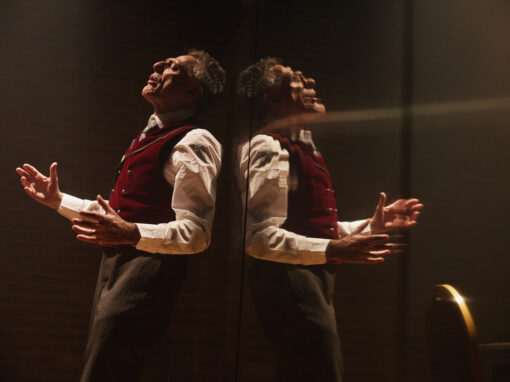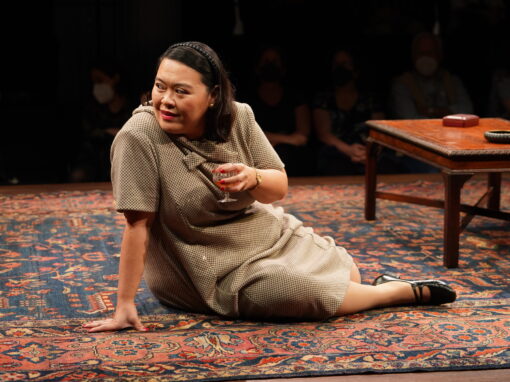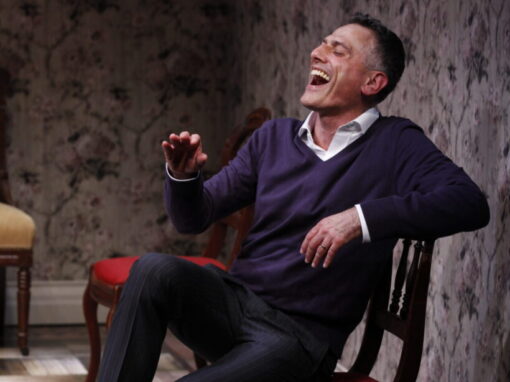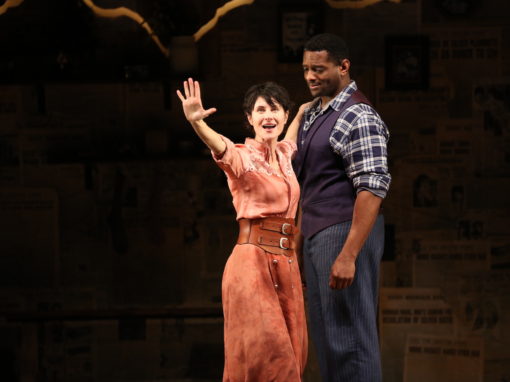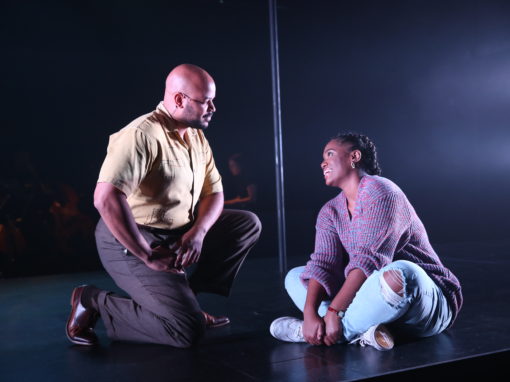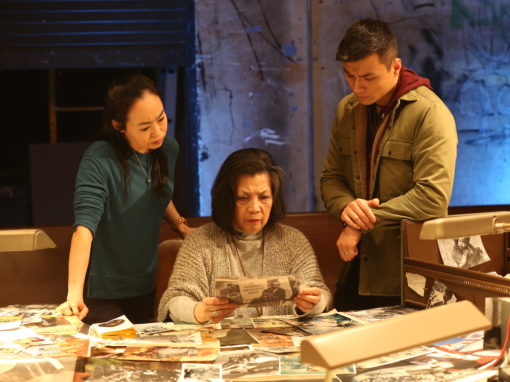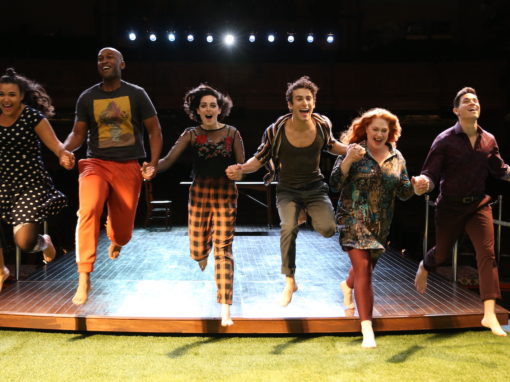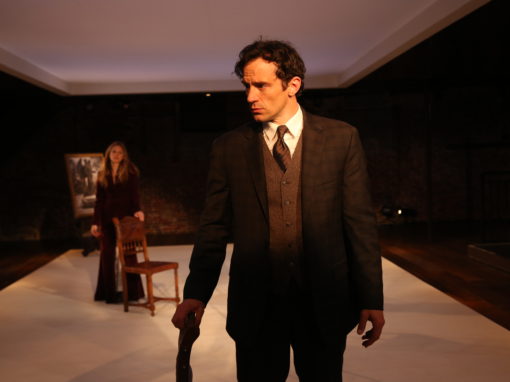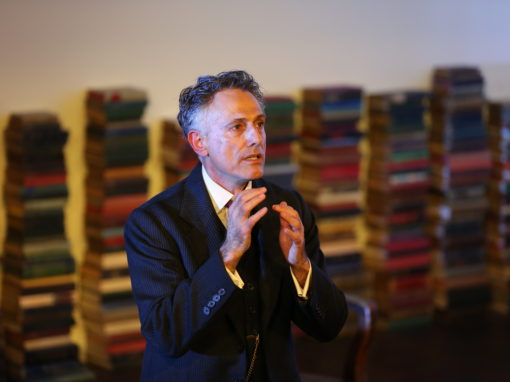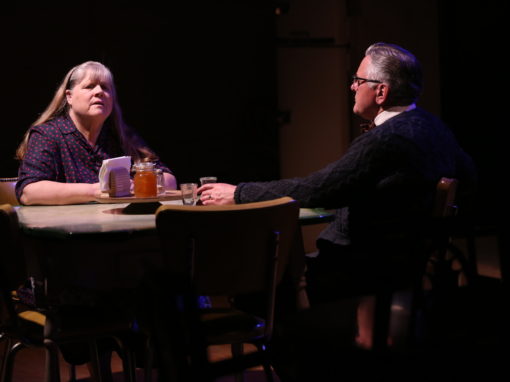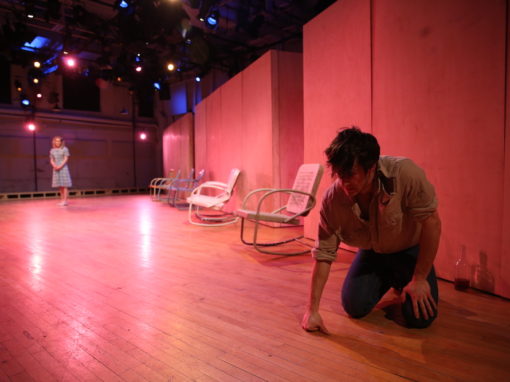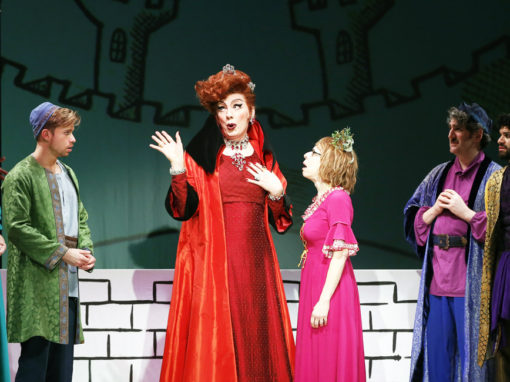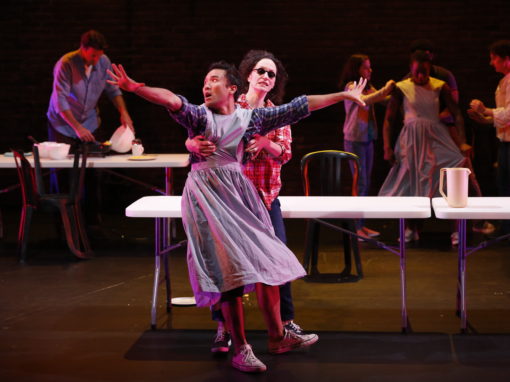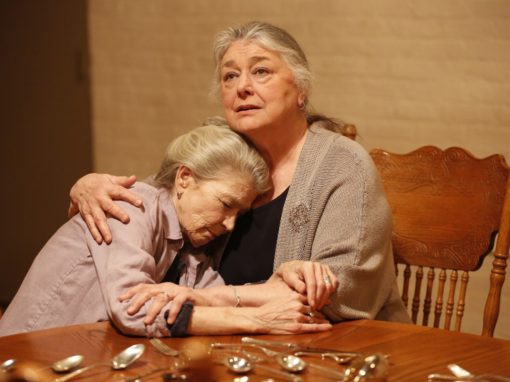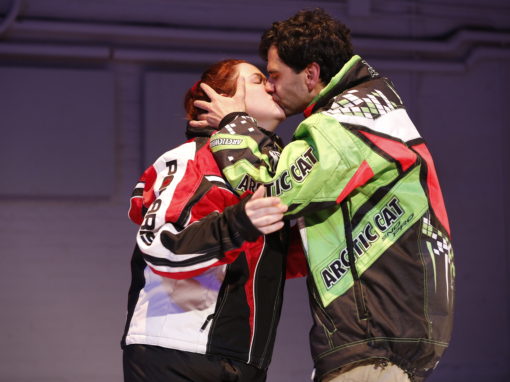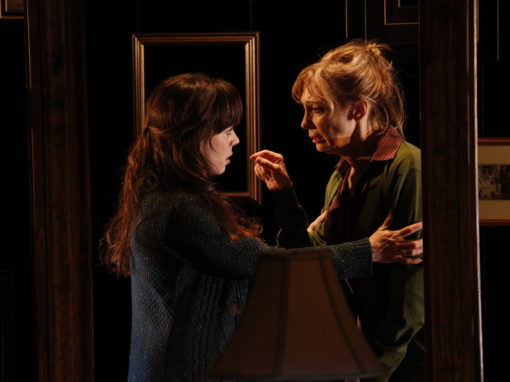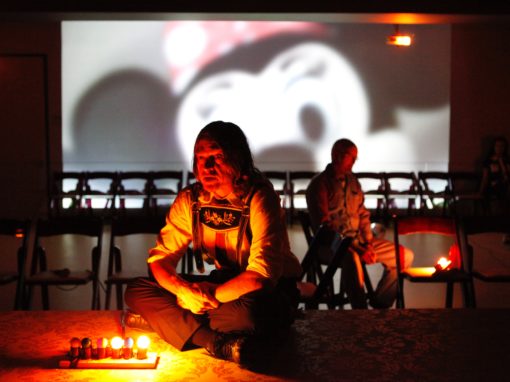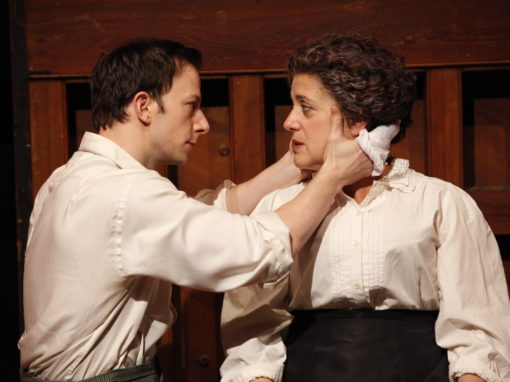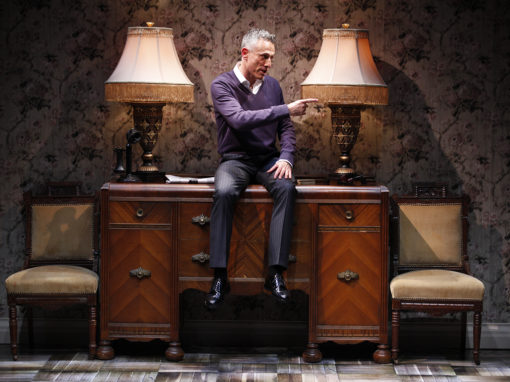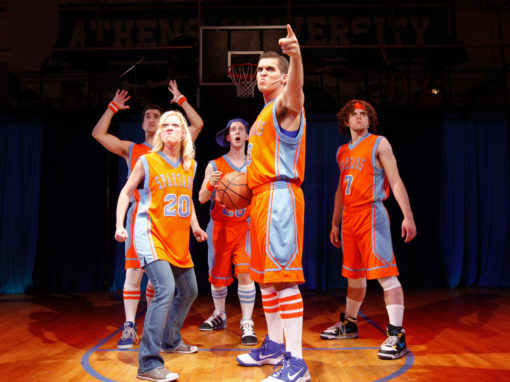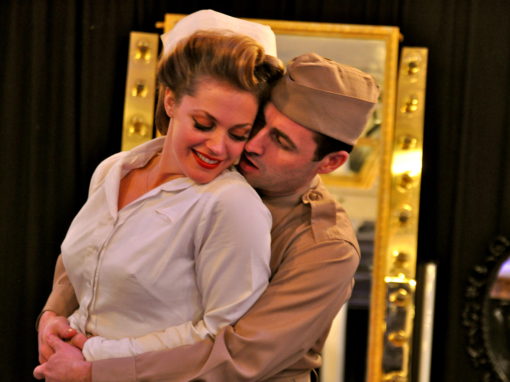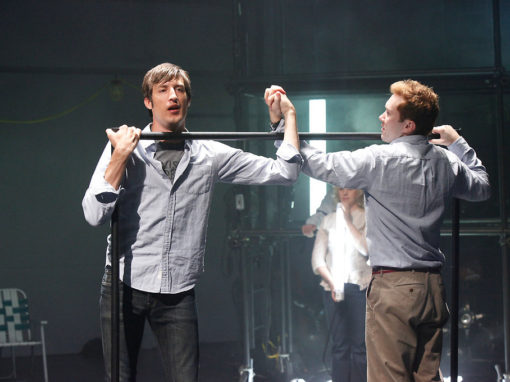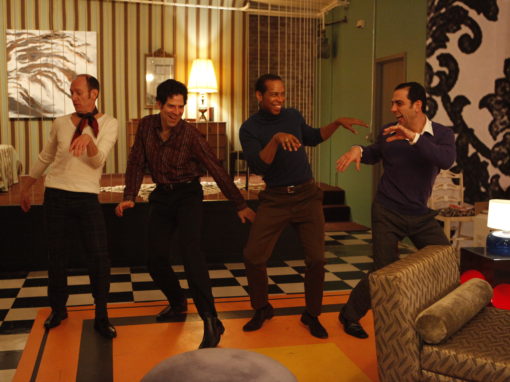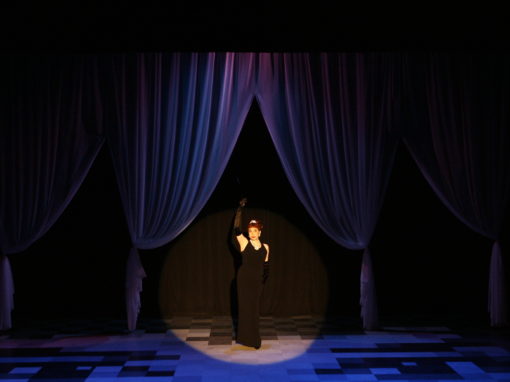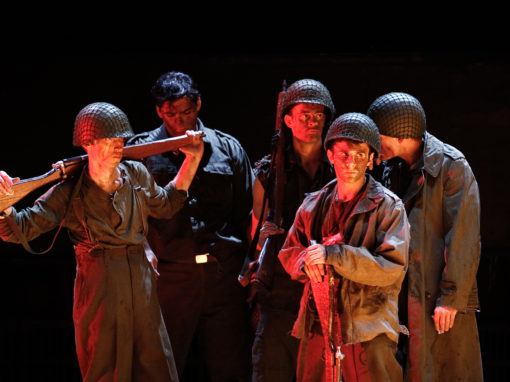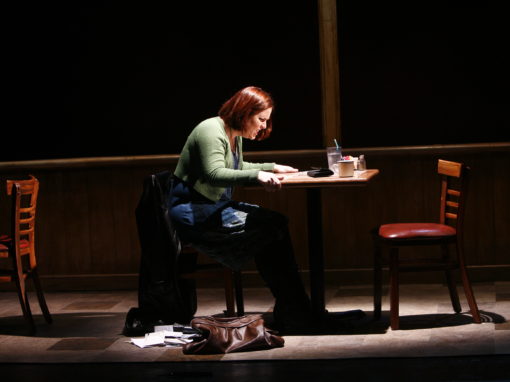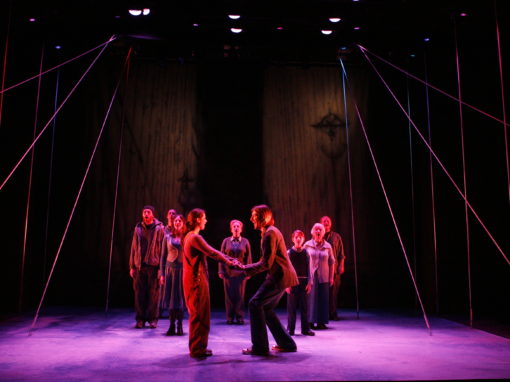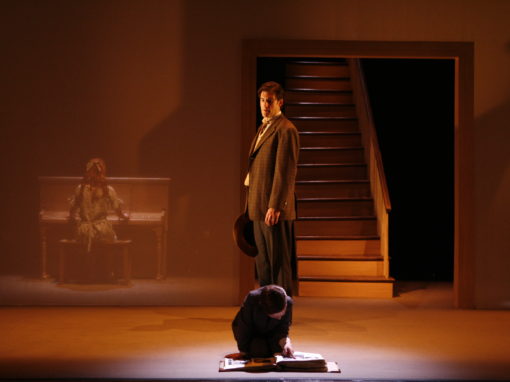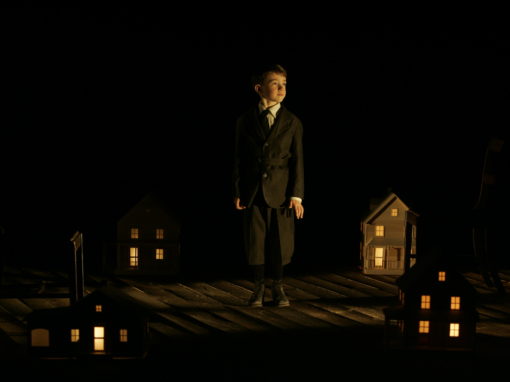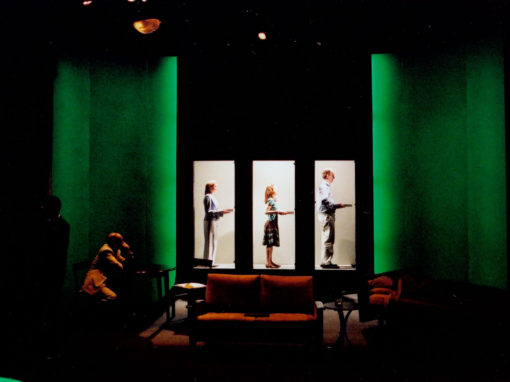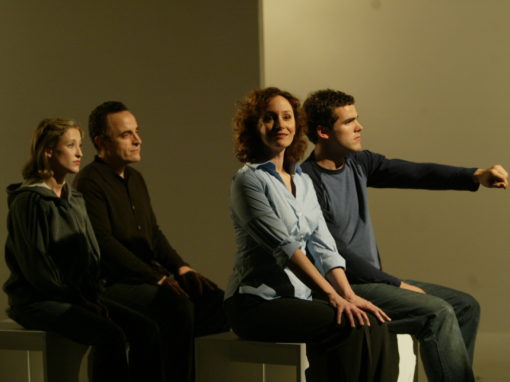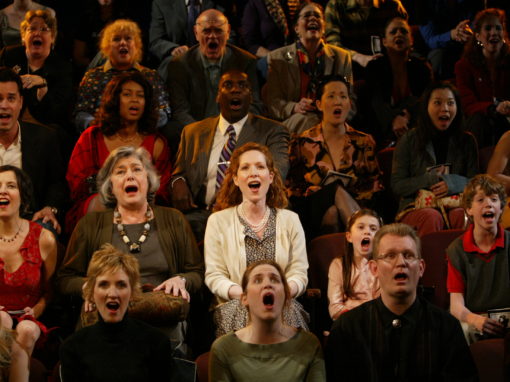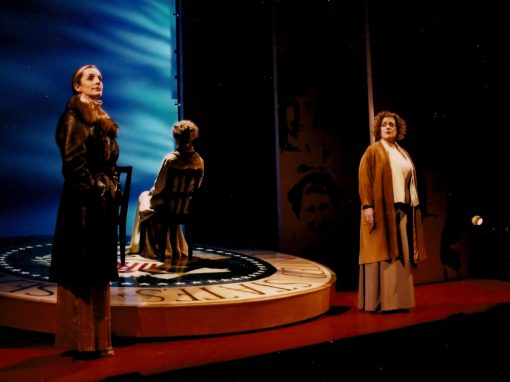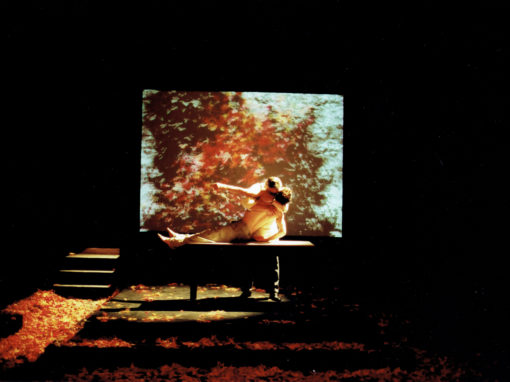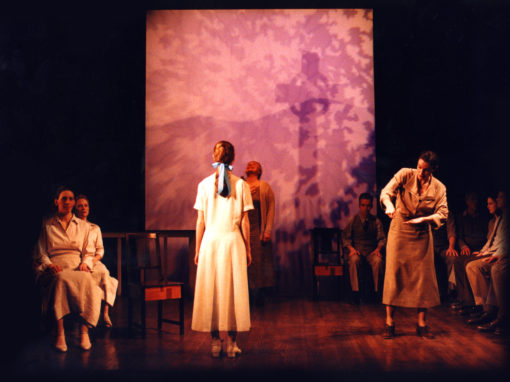The Other Side of the Rabbit Hole // by Krista Williams
What chit chat, TCM, and curiosity taught Dramaturg Krista Williams about the artistic process.
We are now nine months into this pandemic.
And I miss theatre.
This is unsurprising.
But I’ve been asking myself: What do I miss exactly?
And I’ve answered myself: Not the things I would have thought.
I’ve worked with Artistic Director Jack Cummings for the last ten years on a half-dozen productions with Transport Group as his dramaturg. My first play with Jack was The Boys in the Band in 2010. I was fresh out of graduate school and carrying my big ideas about German Romanticism and dramaturgical structure with me everywhere, determined to be ready with the right reference to any given question. I was certain that theatre was (capital “I”) Important work. That it bolstered our empathy. That it expanded our sense of possibility. That it insisted we be together with one another as bodies in time and space to have a collective experience. That it mattered. Ask me at any point in those days and I would have told you about the importance of secular ritual in our postlapsarian lives. I would tell you about the heavy intellectual lift of understanding a place and time that is not our own with enough specificity to recreate it. I would talk about the amorphous almost alchemical experience of unlocking a particular emotion through repeated practice. I would talk about art’s importance in a democracy and about the seriousness of the craft. I loved, then, Oscar Wilde’s quote about working all morning to add a comma and working all afternoon to take it out again. I felt that theatre people practiced in this noble tradition: rehearsing an entrance for the 786th time. Only real artists understood this, I felt. The true and worthy heft of what looked like playtime to others.
And then I started working with Jack.
Jack comes up with his best ideas not pouring over dusty texts but falling down YouTube rabbit holes of Golden Age 20th century film trivia. Turner Classic Movies and Jack’s insomnia can be directly credited with a third of TG’s programming over the last decade. And Jack’s ideas stressed me out. “Let’s just do this play in an apartment instead of a theatre.” “Let’s do I Remember Mama but only with octogenarian women.” “Let’s do an eight-hour Eugene O’Neil play that critics famously hate with just one actor.” “Let’s adapt a play for the stage in real time incorporating lots of original texts that aren’t in this version but not actually add any rehearsal time!” And always, for every play, at some point: “What if we just didn’t invite an audience to this one?” I learned so much watching these terrible ideas become beautiful productions.
I have a vivid memory of a rehearsal report written by TG’s inimitable Stage Manager, Theresa Flanagan. I remember there was considerable scene work scheduled for that particular day. Things that needed to happen for us to stay on track. But the report went something like this:
12-1:30 Getting to know you
1:30 Break
1:50 – 3:15 Getting to know all about you
3:15-3:30 Break
3:30-5 Getting to like you
I can’t remember the production because it’s not relevant.
This could have come from any of Jack’s productions.
This is how he runs rehearsal.
With an absolutely maddening lack of urgency.
Sometimes we wouldn’t get through the FIRST TABLE READ of a play until days into a rehearsal process. And for Almost, Maine I think the first run-through was the first preview because we spent most of that process discussing the hierarchy of the sitcom landscape in the 1980s. He drove David Greenspan, who had no fewer than 6 hours of solo text to memorize, to distraction asking for details about the relationship between David’s dog and his two cats: “But who has the upper hand???” “Who do you love more???” For I Remember Mama, how could we even consider getting on with the work of staging an unconventional century-old Norwegian family drama until we heard all the salacious gossip about Marilyn Monroe and Leonard Bernstein from half a lifetime ago from Marni Nixon? I think we were three weeks into a four-week rehearsal process for The Trial of the Catonsville Nine before there was a real script.
But it worked.
His process works.
I would like to say here that over a decade of working on productions with Jack at the helm that I can now relax into this process and have faith, based on historical evidence, that there is reason to trust. But I lack a learning curve here. I’m too anxious a person maybe. I can imagine the failures too vividly and I lack the emotional maturity to put those imagined failures in perspective. I remain terrified when we’re on minute 45 of a 20-minute break discussing Downton Abbey instead of the new design plan.
But I think it’s precisely because I cannot understand it that I have learned to value it so deeply.
Because I know this process is on purpose.
I know the detours are on the map.
I know that collectively watching this YouTube video even though we haven’t worked out that costume change is the right choice.
And I know this is what makes these shows a delight.
It’s not the textual analysis.
It’s not the inspired conceits.
And it certainly isn’t because we Take It All Seriously.
It is, instead, that he approaches each process leading, not with a plan, but with curiosity.
An omnivorous curiosity that cannot, and will not, be curated.
And I have come to realize that that’s what I miss about theatre right now.
And it has nothing to do with what I learned in graduate school.
It was Jack’s process that taught me the age-old lesson that the real value of the work is not in what we do, but how we do it. It isn’t about grasping at significance, but rather in deciding anew each day what is worthy of being deemed significant.
I credit Jack with teaching me to love and value process over product.
Does theatre make us a better society? I don’t know.
Does it make more empathetic humans of our fellow travelers? I’m not really sure.
Does it facilitate a healthier discourse on which a thriving democracy depends? Maybe? Maybe not?
Does it make us better people?????
Here’s what I do know. The process of making theatre, and making theatre at Transport Group specifically, made me a more curious person. Because I could never see how we could get from initial idea to opening night. That path was completely invisible to me. And this is what I miss. I miss how catastrophically bad the initial ideas sound. I miss diving in anyway. I miss knowing that talking about that third-grade crush in further detail at this moment is more important than staging scene four. I miss the collective understanding that this may not work out at all but if it doesn’t, we won’t regret the trying. I miss the way Jack’s process makes sincere the rhetorical question: What are we even doing?
If the year 2020 were one of Jack’s ideas, I’d say it was another bad one.
What if we have a global pandemic, no communal space, increasingly bigoted discourse, isolation, institutionally sanctioned violence, disinformation, and bad actors everywhere.
It’s just too much and it just won’t work.
But here we are.
And I wish we could do Jack-style tablework on this year. Which is to say: I know we can’t solve all of it. We can’t research our way out of this. We don’t know what it’s going to look like in the end. But regardless of authorial intent, regardless of the narrative structure: What are we feeling? What am I missing? What does it remind you of? What will happen next? Already I am surprised. Our field has been gifted a map towards racial justice, let’s follow it. What work can we do before we get back to work? What is worthy of our labor regardless of outcome?
The stakes are inconceivably higher.
The lives are real and are being lost.
This planet is our only world and we cannot summon another.
The house lights are already up.
But I find I am grateful for the practice. For the practice that is committing to something without any assurances that it will be OK in the end. And doing it in a way that if it isn’t OK in the end, we won’t regret the time we spent trying.
Back in 2011, after a particularly challenging rehearsal for Hello Again, I was at a diner with Jack and the amazing choreographer Scott Rink. I don’t remember the obstacle we were working through—there were considerable ones staging a musical, as we were, in a Soho loft not wired for theatrical lighting, with an orchestra, actor entrances via cargo elevators, and simulated sex on small bistro tables inches from audience members. There were a lot of problems to solve. I remember we were exhausted. It was late. One or two in the morning. Finally, the bill came, and Scott pulled out his card, put it on the table, and said, “If it isn’t rejected, it’s on me.” If TG productions could talk, I think that’s what they would forever be saying: I’m not certain the idea will work, not certain there’s money in the account, not certain we’ll have staged the final scene, not certain it will all add up. But whatever I’ve got, I’ll share, with reckless generosity, and genuine curiosity. If it isn’t rejected, it’s on me.
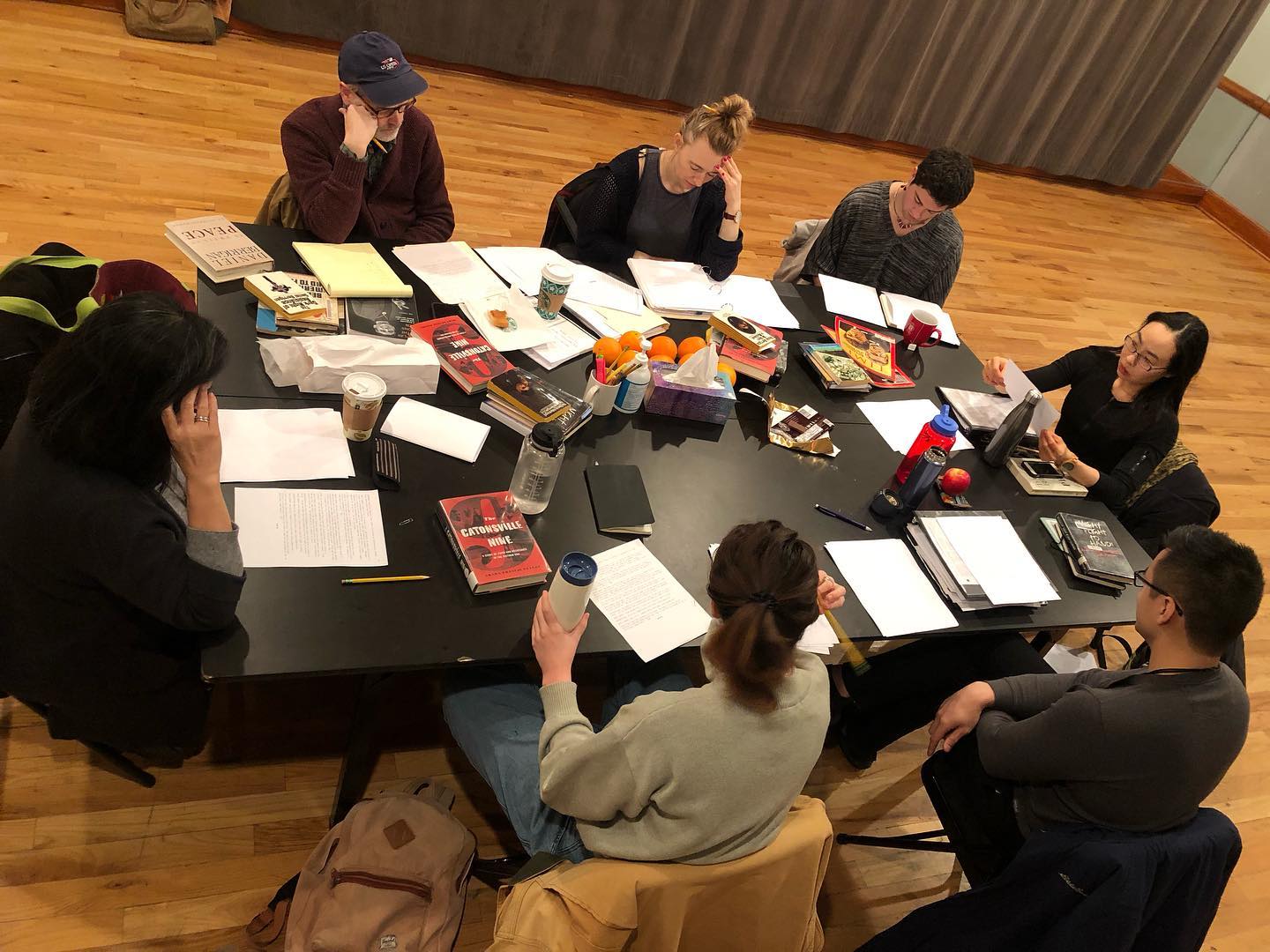
About the author:
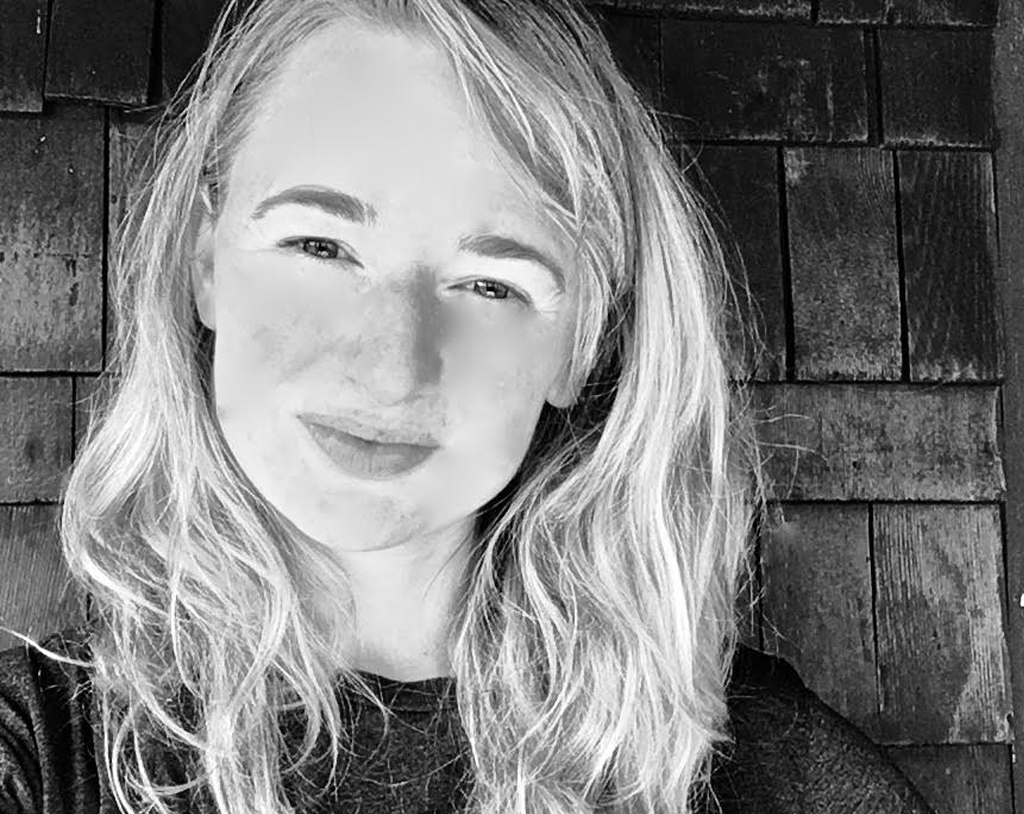
Explore Our Past Shows
